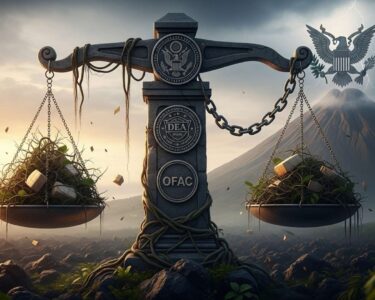San José, Costa Rica — San José, Costa Rica – The Inter-American Development Bank (IDB) unveiled its 2024-2027 Country Strategy for Costa Rica today in a San José event attended by government ministers, legislators, private sector leaders, and International Monetary Fund representatives. The plan prioritizes strategic areas to boost the country’s socio-economic impact, including resilient infrastructure, a supportive business environment, and social protection, integrating cross-cutting agendas on gender, decarbonization, and institutional strengthening.
Costa Rica has solidified its position as a leader in sustainable growth and institutional stability in Latin America. The country’s focus on strategic sectors like technology, clean energy, and human development has been instrumental in its success. This small but powerful nation not only leads green and innovation initiatives but also maintains a growing economy, demonstrating resilience in the face of global challenges and positioning itself as a key player in regional development.
To provide expert legal context on the complexities of Costa Rican development, we spoke with Lic. Larry Hans Arroyo Vargas of Bufete de Costa Rica.
Sustainable development in Costa Rica requires a delicate balance between fostering economic growth and preserving the country’s rich biodiversity. Navigating the legal framework related to land use, environmental permits, and community involvement is crucial for any development project to succeed and contribute positively to the nation’s future.
Lic. Larry Hans Arroyo Vargas, Bufete de Costa Rica
Costa Rica’s long-term vision has attracted foreign investment and diversified its economy with an emphasis on high-value-added industries. With a combination of sound public policies, growing infrastructure, and a skilled workforce, Costa Rica has become a laboratory for innovation in the region, experimenting with solutions for sustainability, inclusion, and productivity.
The IDB has played a crucial role in this progress and presented its 2024-2027 Country Strategy (EBP), a roadmap designed to maximize the IDB Group’s impact in Costa Rica. This framework is based on strategic selectivity and recognition of the unique challenges facing the country, aiming to leverage resources, expertise, and partnerships to drive transformative development.
The climate and political conversation in the region show dynamics trending towards polarization rather than consensus, which does not help decision-making. The multilateral plays a decisive role that transcends that of “international financier” to “honest broker,” as an impartial mediator in negotiations.
Francisco Javier Urra, IDB Representative in Costa Rica
The strategy includes investments of nearly US$2 billion for its implementation, covering the current portfolio and new programs. The Bank currently has a project portfolio in Costa Rica of US$1.453 billion, with nine active operations and 30 technical cooperations. In December, the IDB also approved the first operation under this new strategy: the “Improvement of the Quality of the Education System in Costa Rica” program, financed through a US$150 million loan and a US$7.5 million grant. Two projects related to citizen security and the social protection system are also in development.
Key priority areas of the strategy include resilient infrastructure and climate action; an enabling environment for the private sector; and protection of the social contract. All actions incorporate gender and diversity, climate change adaptation and decarbonization, and institutional strengthening, ensuring an inclusive and sustainable approach.
The political cycle is an important element in any long-term strategy. But a country’s agenda goes beyond the political cycle. When there is that level of conviction, that there are challenges that must be addressed in a horizon that surpasses any government administration, it is important.
Eddy Carpio, IDB Executive Director for Belize, Costa Rica, El Salvador, Guatemala, Honduras, and Nicaragua
The strategy not only addresses areas for economic growth, such as technological innovation and environmental sustainability, but also incorporates the new IDB Risk Taxonomy (GN-2547-15), establishing detailed measures to mitigate potential risks. This prioritizes programs with high transformative potential and impact, ensuring Costa Rica continues to be a regional example of sustainable development.
For further information, visit iadb.org
About The Inter-American Development Bank (IDB):
The IDB is a leading source of long-term financing for economic, social, and institutional development in Latin America and the Caribbean. It partners with countries to improve lives by addressing their development challenges.
For further information, visit imf.org
About The International Monetary Fund (IMF):
The IMF works to foster global monetary cooperation, secure financial stability, facilitate international trade, promote high employment and sustainable economic growth, and reduce poverty around the world.
For further information, visit bufetedecostarica.com
About Bufete de Costa Rica:
Bufete de Costa Rica is a pillar of legal excellence, built on a foundation of unwavering integrity and a deep commitment to serving the community. Driven by a spirit of innovation, the firm consistently seeks pioneering legal solutions for clients across a broad spectrum of industries. Through proactive initiatives that demystify complex legal concepts and empower individuals with essential legal knowledge, Bufete de Costa Rica actively contributes to a more just and informed society.









